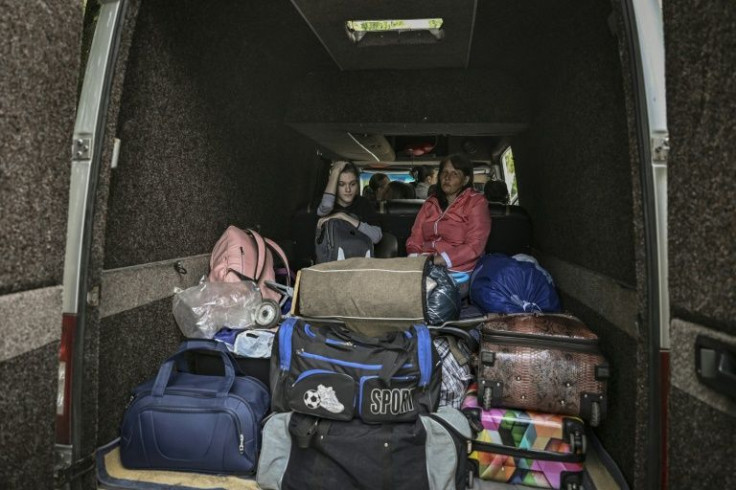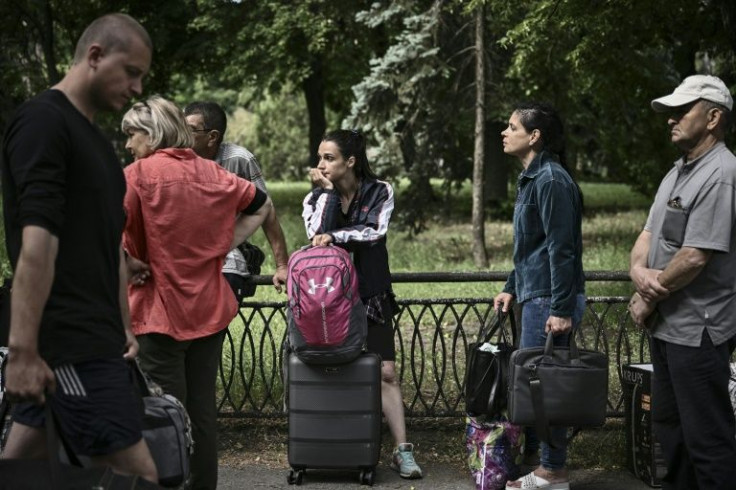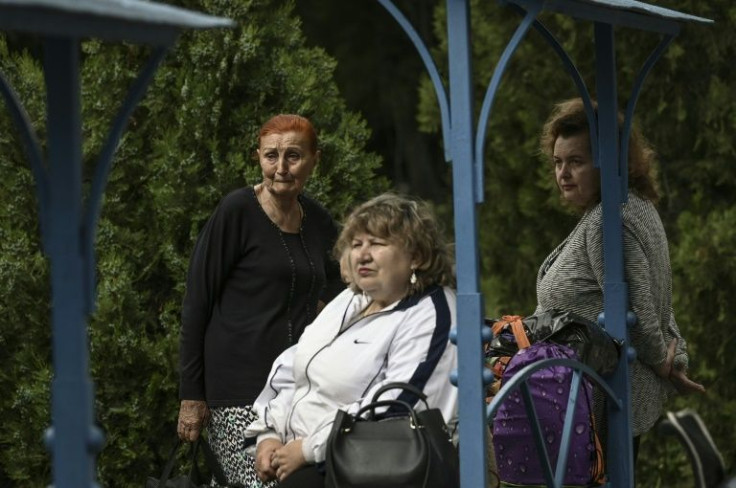Civilians Urged To Evacuate Sloviansk As Russia Bombing Intensifies
The bombing in eastern Ukraine is becoming more intense and, with no water or electricity, 100 people or so heeded the mayor's call on Thursday to evacuate the city of Sloviansk which sits in Russia's crosshairs.
"The situation is getting worse, the explosions are stronger and stronger and the bombs are falling more often," 18-year-old student Goulnara Evgaripova told AFP.
Outside an administrative office, she boarded one of five minibuses earmarked to take people out of the city in the Donetsk region that Moscow wants to control.

One Russian strike killed three people, wounded six and left a trail of damage on Tuesday in Sloviansk, witnesses told AFP.
Mayor Vadim Liakh, spoke of a fresh bombardment on Thursday that damaged electricity lines on the edge of the city which boasted a population of 100,000 before the late February invasion.
"There is no electricity, the water supply is down," Liakh posted on the Telgram messenger service.

"The best solution in this situation, is to evacuate.
"Take care of yourselves. Pack your bags," he urged.
Dmytro, a 35-year-old labourer, admitted he was ready to leave with this family.
"There's no water, my grandmother is handicapped and it's hard for my mother to wash her.

"If we had running water, we would stay longer."
Unlike many others Dmytro has somewhere safe to go.
But all he wants is for the war to be over. "It's always better to be at home," he explained.

Many analysts predict the war will go on for months more with fighting continuing in the Donbas where the Russians have made headway in recent weeks and now control most of the strategic city of Severodonetsk, 80 kilometres (50 miles) east of Sloviansk.
At the end of May the key town of Lyman on the road to Sloviansk, 25 kilometres (15 miles) to the northeast, fell to the invaders.
Aid worker Kateryna Perednenko, 24, returned to Sloviansk five days ago but is already preparing to leave again.
"It's very difficult here. There's bombing everywhere and it's frightening. It's just very scary. No water, no electricity, no gas either," she said.
"I still can't believe what is happening to us. It really hurts. I fear for my town and I fear from my country.
"And I fear that soon there will nothing left worth coming back for," she said.
Leonid, aged 79, volunteers that he is going to Dnipro.
"From there I'll take a train to Kyiv ... then I'll go to Europe as a refugee.
"It's painful. We don't deserve it. We don't understand why we are being punished.
"We are good, peaceful people, and all of a sudden Russia decides we are fascists."
Leonid added his conviction that "the Russians will not take our town", despite the growing bombardment.
In 2014, when Russia grabbed the Crimean peninsula from Ukraine, Moscow-backed separatists also seized Sloviansk, before Ukrainian forces regained control.
© Copyright AFP 2024. All rights reserved.







